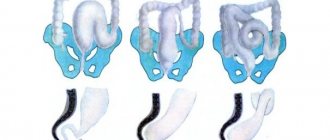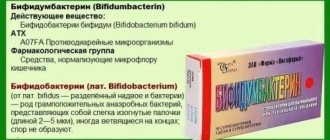The article was prepared by a specialist for informational purposes only. We urge you not to self-medicate. When the first symptoms appear, consult a doctor.
Suppositories for reducing body temperature are used in the treatment of children and adults. This form of release becomes especially relevant when it is not possible to take the drug orally. The active component is absorbed through the intestinal mucosa, enters the bloodstream and spreads throughout the body, providing an antipyretic effect. The entire process bypasses the upper gastrointestinal tract without causing irritation.
In addition to antipyretic properties, suppositories may have a number of other effects. They reduce pain, stop inflammation, and make you feel better. The list of contraindications for drugs in the form of suppositories is much shorter than for tablets, capsules or syrups. However, they can also cause side effects, so before starting treatment you should consult a specialist.
In the article, we have collected the most frequently prescribed suppositories for fever for children and adults, examined the features of their use, as well as the pros and cons of each drug [1], [2], [3].
- Paracetamol
Why are suppositories better than tablets?
Most people strongly associate the need to use suppositories with the treatment of constipation, hemorrhoids, and gynecological diseases. However, contrary to popular belief, they operate not only at the local level. This is their main difference from tablets.
The active components contained in the suppository quickly penetrate the bloodstream, affecting the body as a whole (systemic effect). This is possible due to the high absorption capacity of the rectal mucosa, as well as the well-developed circulatory system of the pelvic organs.
A suppository, unlike a tablet, does not have to travel a long way through the entire gastrointestinal tract. The drug is not exposed to acid-base conditions, its activity is not suppressed by digestive enzymes.
Candles can be used regardless of meals. They do not have a pronounced effect on the liver and kidneys, which reduces the likelihood of allergic reactions and side effects. All this enhances the effectiveness of the drug. A tablet taken at the same dose is often weaker than a suppository.
Sometimes a person cannot take a medicine orally for fever due to certain circumstances, for example, when he started vomiting, or there was an exacerbation of diseases of the digestive system. Candles are convenient to use in the treatment of small children. In some cases, this dosage form is the only one possible for use.
Pros and cons of using candles depending on temperature
Using temperature controlled candles provides the following benefits:
- The drug acts without bypassing the digestive system.
- Suppositories can be used against the background of nausea, vomiting, gastrointestinal diseases, and impaired swallowing.
- A person will not have to feel the taste and smell of the medicine, which is not always pleasant.
- The drug is absorbed into the blood quickly. This does not take much longer than with intramuscular administration.
- Allergies to the active components of suppositories occur less frequently than to other dosage forms.
- Candles are convenient to use for treating children and the elderly.
Despite all the positive characteristics, candles are not without drawbacks. These include:
- The absence of many drugs in this form of release.
- Inconvenience of use due to the need to comply with hygiene rules.
- Candles cannot be used outside the home; they must be stored under certain conditions.
- Some of the drug may leak out of the anus if administered incorrectly.
- The inability to use suppositories for diseases of the rectum, as well as for diarrhea.
Temperature candles for adults
Adults without serious illnesses can use suppositories containing several ingredients to reduce fever. This allows you to quickly get rid of fever and pain and make you feel better.
Suppositories should not be used as an antipyretic for more than 5 days. If symptoms do not go away during this time, you should consult a specialist.
All drugs that are used in the treatment of children and pregnant women can be used to reduce fever in adults, but the dosage should be higher, according to the available instructions. For Paracetamol suppositories it is 500 mg 1-4 times a day [1].
Cefekon N
Tsefekon N candles – 80 rubles. Active ingredients: naproxen, caffeine, salicylamide. The drug helps relieve pain, lower body temperature, and reduce inflammation. It is used as an antipyretic for colds, infectious and non-infectious diseases. Suppositories are administered rectally, 1 suppository per day [4].
Pros:
- The effect develops quickly, within 30 minutes.
- Complex action.
Minuses:
- Contraindications such as stomach ulcers, pregnancy and lactation.
- Cannot be offered to children under 16 years of age.
- Side effects such as increased blood pressure, rapid heartbeat, dizziness.
- Allergic reactions are possible.
Indomethacin
Indomethacin suppositories – 150 rubles. The main active ingredient is indomethacin. A drug from the NSAID group, it has the ability to relieve inflammation, lower body temperature and relieve pain. Suppositories are prescribed for diseases accompanied by hyperthermia and pain in soft tissues, joints, and muscles. The suppository is administered rectally, 1-2 times a day at a dose of 50 mg or a single dose of 100 mg [5].
Pros:
- Has a complex effect.
- Rapidly absorbed, bioavailability after rectal administration reaches 90%.
- The effect develops half an hour after administration.
Minuses:
- The drug does not affect the course of the disease, but only relieves symptoms.
- An extensive list of contraindications, including heart disease, gastrointestinal tract, and hematopoietic disorders.
- Cannot be used in the treatment of children under 15 years of age, pregnant or lactating women.
- The drug interacts with many substances, which limits the scope of its use and requires consultation with a doctor.
Diclofenac
Suppositories Diclofenac – price 150 rubles. The main active ingredient is diclofenac. Belonging to the NSAID group, the drug has an antipyretic effect, relieves inflammation and pain. Suppositories are prescribed for inflammatory and infectious diseases accompanied by elevated body temperature and pain. The initial daily dose is 100 mg, divided into 2 doses [6].
Pros:
- Pronounced analgesic effect.
- The drug begins to act quickly, half an hour after administration of the suppository.
- It can be used in the treatment of pregnant women in the first and second trimester, but only after consultation with a specialist.
Minuses:
- The drug should not be prescribed to pregnant women in the third trimester and children under 15 years of age.
- Side effects in the form of allergic reactions, abdominal pain, bowel dysfunction, dizziness, vertigo and more.
- Restrictions on storage at + 20 degrees.
Analgin
Rectal suppositories Analgin – 100 rubles. The main active ingredient is metamizole sodium. The drug reduces body temperature, relieves spasms and pain. It is used for fever caused by infectious and non-infectious diseases. Suppositories of 250 mg are administered rectally, 2 pieces, 2 times a day.
Pros:
- Quick effect that develops within 20 minutes.
- The drug does not affect the water-alkaline balance of the body and does not irritate the mucous membranes.
- Complex effect.
- Low price.
Minuses:
- Weak anti-inflammatory effect.
- Prohibited use by children under 3 years of age, pregnant and lactating women.
- Side effects in the form of an allergic reaction, disorders of the urinary system and hematopoietic organs.
Step-by-step procedure
The stages of administering a rectal suppository are as follows:
- Wash your hands well with soap and remove the candle from
Rectal suppositories have a longer therapeutic effectpackaging.
- Place your baby so that he lies on his left side. You can smear Vaseline or baby cream on the baby's anus so that he does not feel discomfort.
- Next, you should bend the baby’s legs at the hip joints and knees. They must be fixed in this position. The suppository is administered to infants while they are lying on their back and their legs are pressed to their stomach, as when changing a diaper.
- Using your left hand, you need to carefully spread the buttocks apart without scaring the baby. With your right hand, insert the rectal suppository into the anus, holding it with your finger (the candle is inserted with the pointed end).
- The baby's buttocks should be closed for one or two minutes. Otherwise, he may reflexively squeeze the candle out. It will be better if the baby lies quietly for at least half an hour, without making sudden movements.
Candles from temperature for children up to one year
In childhood, suppositories for fever are used especially often. This is due to the fact that it is inconvenient to offer tablet drugs to a child. With suppositories such problems will not arise. The main thing is to read the instructions for use [7], [10].
When choosing a drug for a newborn child, you need to take into account that for children under 12 years of age, products based on 2 substances are allowed - paracetamol and ibuprofen.
Paracetamol
Rectal suppositories Paracetamol – price 50 rubles. The active substance is paracetamol. The drug affects the central nervous system, blocking the center of thermoregulation and pain. For children under one year of age, the drug is prescribed at a dosage of 100 mg. The daily dose should not exceed 60 mg/kg body weight. Suppositories are used to reduce fever in infectious and non-infectious diseases, as well as to relieve dental, headache and muscle pain [8], [9].
Pros:
- The effect develops within 30 minutes – 2 hours. Body temperature decreases gradually.
- The drug has no effect on the gastrointestinal tract and does not lead to retention or removal of fluid from the body.
- The toxicological activity of the drug is low.
- Can be used in children 1-3 months old to reduce body temperature during vaccination.
Minuses:
- Cannot be used in the treatment of patients with liver and kidney damage.
- Possible side effects in the form of allergic reactions and abdominal pain.
- The drug interacts with some medications, so it can only be used after medical consultation.
Ibuprofen
Rectal suppositories Ibuprofen – price 100 rubles. The main active ingredient is ibuprofen. A drug from the NSAID group. It relieves fever, reduces pain and stops the inflammatory reaction. Candles are used at elevated body temperatures due to various diseases. With their help, you can reduce the intensity of dental, headache, muscle and other types of pain. Suppositories with a dosage of 60 mg are used for children 3-9 months up to 3 times a day.
Pros:
- Long-lasting effect that lasts for 8 hours.
- Gradual decrease in body temperature.
- Can be used to treat children under one year of age.
Minuses:
- Numerous contraindications, including: bronchial asthma, stomach ulcers, severe liver and kidney damage.
- Do not administer to children under 3 months of age.
- Side effects in the form of allergic reactions, increased blood pressure, impaired kidney function.
Efferalgan
Efferalgan candles – 150 rubles. The main active ingredient is paracetamol. The drug affects the central nervous system, blocking the center of pain and thermoregulation. Candles can be used at elevated body temperatures due to acute respiratory viral infections, influenza, infectious diseases, and reactions to vaccines. They are used as an anesthetic for dental, headache, muscle and other types of pain. For children 3-5 months old, suppositories with a dosage of 80 mg are used; for children from 6 months to 3 years old, the drug is used with a dosage of 150 mg. Candles can be inserted every 4-6 hours, but not more than 4 times a day.
Pros:
- Does not affect water-salt metabolism.
- Does not irritate the intestinal mucosa.
- Smoothly reduces temperature.
Minuses:
- Does not have an anti-inflammatory effect.
- Absorbed slowly over 2-3 hours.
- The presence of contraindications in the form of blood diseases, severe liver and kidney damage.
- Prohibited use for children under 3 months.
Panadol
Rectal suppositories Panadol – price 100 rubles. Each suppository contains 125 mg of paracetamol. The drug belongs to the group of analgesics. Its use can reduce pain and lower body temperature. Suppositories with a dosage of 125 mg are used to treat children from six months to 2.5 years with infectious diseases accompanied by a hyperthermic reaction. The drug can be used as a pain reliever. You should not use more than 4 suppositories per day. Without consulting a doctor, treatment should last no longer than 3 days.
Pros:
- Gradual decrease in body temperature.
- Rare occurrence of side effects.
- Over-the-counter sale.
- French production.
Minuses:
- The presence of contraindications in the form of blood diseases, inflammation in the rectum, serious disorders in the liver and kidneys.
- Prohibited use for children under 6 months.
- Weak anti-inflammatory effect.
Tsefekon D
Rectal suppositories for children Tsefekon D – price 70 rubles. The main active ingredient is paracetamol of varying dosages. For children aged 1 to 3 months, 50 g suppositories are used. They are prescribed for diseases accompanied by elevated body temperature and pain. Single dose – 1 suppository. Repeated administration is possible after 4-6 hours.
Pros:
- Rapidly absorbed into the gastrointestinal tract. The effect develops within half an hour.
- Bioavailability in children is similar to that in adults.
- Can be used to treat newborns (after consultation with a doctor).
- The drug reduces temperature and relieves pain.
Minuses:
- Allergic reactions are possible.
- The drug can distort the levels of glucose and uric acid in the blood plasma.
- You should not use candles for longer than 5 days.
Viburkol
Homeopathic rectal suppositories Viburkol – price 500 rubles. Active ingredients: chamomilla, belladonna, dulcamara, plantago, pulsatilla, conhe. Suppositories are used as an antipyretic for respiratory diseases in children, as well as to reduce pain during teething. The suppositories are administered rectally, 1 suppository 2 times every 24 hours (for children under 6 months).
Pros:
- Natural composition.
- There are no contraindications, except for individual intolerance to the components included in the composition.
- May be used in combination with other drugs.
- Made in Germany.
Minuses:
- The drug is homeopathic, which means its effectiveness has not been proven by science.
- Adverse reactions such as allergies and diarrhea.
- Storage temperature restrictions are 15-25 degrees.
- High price.
Nurofen
Rectal suppositories Nurofen for children - price 100 rubles. The main active ingredient is ibuprofen with a dosage of 60 mg. The drug has an antipyretic and analgesic effect, effectively stopping the inflammatory reaction. It is used for elevated body temperature against the background of infectious and inflammatory diseases, as well as for various types of pain. Children aged 3 months to six months are administered 1 suppository with a dosage of 60 mg no more than 3 times a day.
Pros:
- Long-lasting effect that lasts up to 8 hours.
- Has a triple effect: reduces body temperature, inflammation and pain.
- High bioavailability.
Minuses:
- Can only be used for children over 3 months.
- The drug has no effect on the progression of the disease.
- The presence of contraindications in the form of intolerance to NSAIDs, severe renal and liver failure, blood clotting disorders, body weight less than 6 kg.
- The drug interacts with other drugs.
Dafalgan
Rectal suppositories for children Dafalgan – 300 rubles. The main active ingredient is paracetamol. The drug is prescribed to children over 1 month of age to reduce body temperature and relieve pain. The dosage of paracetamol in one suppository is 80 mg. Suppositories are used for various conditions accompanied by a hyperthermic reaction.
Pros:
- A small number of contraindications and side effects.
- Gradual decrease in body temperature.
- Suppositories do not irritate the intestinal mucosa.
- The drug is produced in Switzerland.
Minuses:
- High price.
- Storage temperature restrictions are 15-25 degrees.
- The presence of contraindications in the form of severe liver and kidney pathologies.
- Weight less than 5 kg.
special instructions
Rectal suppositories are administered to the child only after the intestines have been emptied. If, after administering suppositories for fever, a bowel movement occurs, the suppository should be reintroduced. If more than 10 minutes have already passed and the contents of the rectal suppository have been absorbed into the rectum, the procedure does not need to be repeated.
Since rectal suppositories contain oils and paraffins, they tend to melt quickly. At body temperature, they begin to liquefy and, without completely dissolving in the rectum, flow out, so
Suppositories should be used as prescribed by a pediatrician
It is best to place a diaper under the baby's bottom.
Due to these properties of suppositories, it is recommended to store them in a dark and cool place (from 8 to 15 degrees). Before use, be sure to read the instructions for use and under no circumstances use them after the expiration date.
Candles for children aged one year and older
To reduce body temperature, children over one year of age are prescribed the same medications as newborns. Their mechanism of action, indications and contraindications remain unchanged. Only the dosage is subject to adjustment.
According to the instructions for the drugs: [7]
- Cefekon D at a dosage of 100 mg at the age of 1-3 years, at a dosage of 250 mg at the age of 3-10 years.
- Viburcol. The drug is used to reduce body temperature in children older than one year, administering up to 6 suppositories per day.
- Efferalgan suppositories are used to treat children from six months to three years at a dosage of 150 mg, and for children from 5 to 10 years at a dosage of 300 mg.
- Nurofen suppositories are prescribed to children aged 9 months to 2 years at a dosage of 60 mg 4 times a day. The maximum daily dose is 240 mg.
- Viferon suppositories are administered to children over one year old and up to 7 years old at a dosage of 3,000,000 IU per day. For children over 7 years of age, the dose is increased to 5,000,000 IU.
- Ibuprofen suppositories are prescribed to children from 9 months to 2 years at a dosage of 60 mg up to 4 times a day. The maximum daily dose is 240 mg.
- Cefekon D is prescribed to children from 3 to 10 years old at a dosage of 250 mg.
- Paracetamol suppositories for children from one to 5 years of age are prescribed in a dosage of 100 mg, up to 2 pieces at a time. Children aged 5-10 years – 1 suppository at a dose of 250 mg.
- Analgin suppositories can be used in the treatment of children over 3 years of age. The daily dose should not exceed 10 mg/kg. To reduce body temperature, use 1-2 suppositories of 100 mg, 2 times a day.
[Video] Pediatrician of the Scientific Center for Children's Health Lashkova Yuryevna Sergeevna - how to help a child if his body temperature has risen. Tips for parents:
Features of the procedure
Rectal suppositories come in different types. They are prescribed to children as a laxative or to administer a specific medication.
If you do not have the necessary experience and you do not know how to insert a candle into a child, then such a procedure may seem scary and difficult at first glance.
To carry out the manipulations, you will need the candles themselves, baby cream or Vaseline. If the child has already grown up, he must be told that this is necessary so that he can recover faster and it is better than injections or medications to explain exactly how the procedure will take place.
It is necessary that the baby takes these manipulations calmly. Otherwise, the procedure may be painful. If the child is still small, then he needs to be distracted. For this purpose, you can call someone close to you for help.
Before starting the procedure, the candle must be warmed at room temperature.
To make the process go faster, you can immerse it in warm water without removing it from the protective packaging or hold it in your palms for a while.
Candles during pregnancy
During pregnancy, you can use suppositories for fever containing paracetamol and ibuprofen.
You cannot start therapy on your own; there must be good reasons for this. The doctor selects the drug and dosage, assessing the benefits for the mother and possible harm to the child.
Features of treatment with ibuprofen-based suppositories:
- The drug is contraindicated in the third trimester of pregnancy.
- In the second trimester, the drug is prohibited if there is increased uterine tone and there is a threat of miscarriage.
- In the first trimester of pregnancy, use is possible, but only after consultation with a doctor.
It is recommended to use any drugs in minimal therapeutic doses. The choice should be made in favor of monocomponent suppositories, based on one active ingredient. Under no circumstances should you use suppositories containing analgin.
Paracetamol suppositories for pregnant women: Panadol 250 mg, Cefekon D 250, Paracetamol 250 mg or 500 mg.
Ibuprofen suppositories for pregnant women: Ibuprofen 125 mg, Nurofen 2 suppositories 60 mg each,










